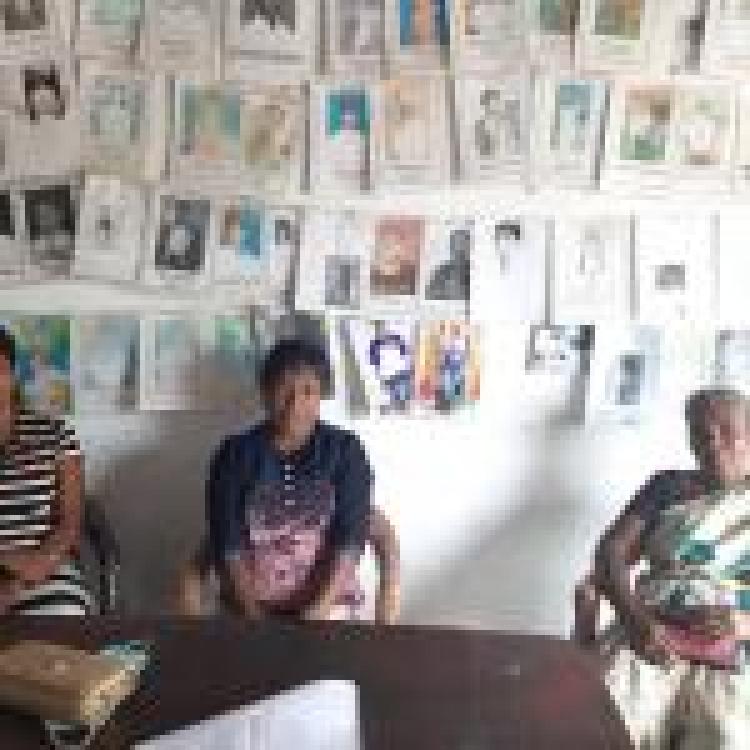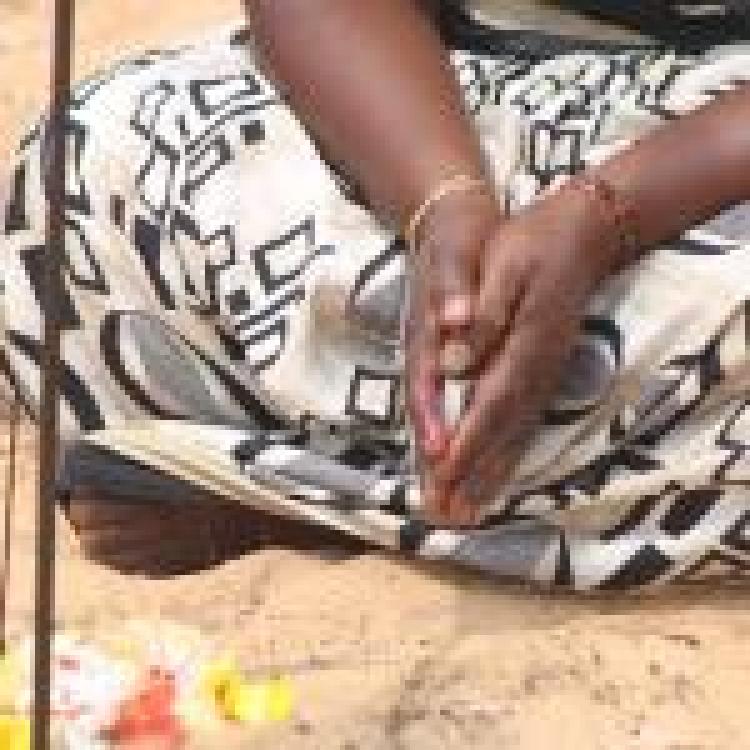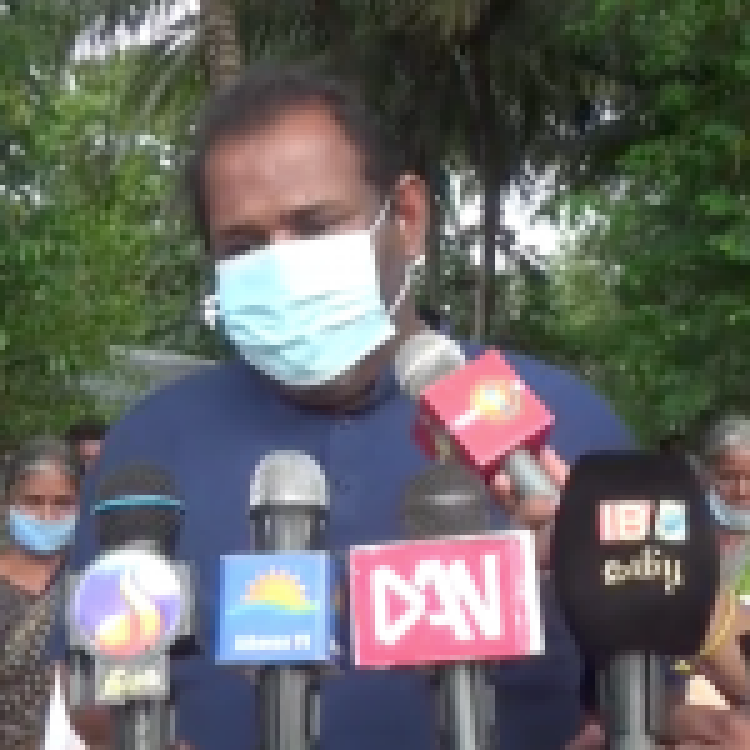 The families of the disappeared in Mullaitivu have asked the international community to “urgently come forward and help investigate the Sinhala chauvinist government’s genocide by establishing a special tribunal” and to take the government to the International Criminal Court to seek justice.
The families of the disappeared in Mullaitivu have asked the international community to “urgently come forward and help investigate the Sinhala chauvinist government’s genocide by establishing a special tribunal” and to take the government to the International Criminal Court to seek justice.
 In a plea sent out to the United Nations Human Rights Commissioner on Saturday (20th June), they insisted “this is our last wish”. This was sent shortly after they took part in a peaceful protest.
In a plea sent out to the United Nations Human Rights Commissioner on Saturday (20th June), they insisted “this is our last wish”. This was sent shortly after they took part in a peaceful protest.
 The plea headed with “The international community is our last hope”, detailed the forcible disappearances and lack of accountability and justice the Sri Lankan government has so far faced for its actions;
The plea headed with “The international community is our last hope”, detailed the forcible disappearances and lack of accountability and justice the Sri Lankan government has so far faced for its actions;
“Sri Lanka’s forced disappearances of Tamils carried out by the Sinhala government is a form of ethnic cleansing. During the final stages of the conflict in Vanni, many people were forcibly disappeared. In places where there was no conflict, Many people were forcibly disappeared through white van abductions or armed soldiers.
Following the end of the war in the Vanni, many wives and parents surrendered their partners and children, and believed the false promises of the state. Many people were forcibly disappeared while they were receiving treatment at hospitals and others were taken when being questioned at the checkpoints. Others have also been taken from isolation and rehabilitation camps.”
 It highlights the origins of the continuous protests the families of the disappeared carry out;
It highlights the origins of the continuous protests the families of the disappeared carry out;
“Like this, many individuals and groups were forcibly taken either and after trying to find justice through various organisations we resorted to protesting. We have been continuously protesting since we first demonstrated in front of Killinochchi Kandasamy Temple on 20th February 2017. These protests have gradually extended to multiple districts and Saturday marked 1200 days of continuous protests in Killinochchi.”
 The letter addressed the neglect by Tamil politicians to achieve promises of accountability and their opportunism to use them simply for political gain;
The letter addressed the neglect by Tamil politicians to achieve promises of accountability and their opportunism to use them simply for political gain;
“Like the Sinhala politicians, the elected Tamil politicians that have been elected also disregard the families of the disappeared. However as we near an election, the issue of the families of the disappeared seems to be discussed by everyone and this sudden concern for us baffles us. These politicians, who quoted that we could trust them, could have conferred with the Sri Lankan government to give us closure and justice.
Under the previous governments rule, they were unable to exert pressure to ensure that Maithripala Sirisena would satisfy his promises to us.
“The international investigations have finished”, “The Sri Lankan government needs an extension of time”, “Both sides of the conflict needs to be investigated for war crimes” , “Run the Office on Missing Persons that we rejected, with the government”, they have sided with the Sri Lankan government to work against us. They are currently using crocodile tears to paint us as heroes as if it would make us feel better.”
 The role of the international community in disregarding the Tamils and how it resulted in many lives being lost was stressed. The responsibility the international community now has in delivering justice was reiterated;
The role of the international community in disregarding the Tamils and how it resulted in many lives being lost was stressed. The responsibility the international community now has in delivering justice was reiterated;
“The international community stood by as we had an uprising for Tamil rights yet and were misguided by the Sri Lanka government’s propaganda and myths to label our movement as terrorism. The Mullivaikkal genocide is the result of this. Therefore, the international community has a responsibility to ensure we are delivered justice.
The search to find our loves ones exceeds 1200 days of protest with no answers. The Sinhala government has deceived the UN and the international community by establishing the ineffective Office of Mission Persons (OMP). We have repeatedly and clearly stated our demands to the UN and international ambassadors but we have instead been told to accept the OMP. However, the Sri Lankan government’s true intentions and attitudes was only made apparent to every one when they decided to pull out from the 30/1 resolution earlier this year.
It has been 11 years since we have lost our wives, husbands parents, children were forcibly disappeared and many people have died longing with angst and sorrow that their loves ones would return. Children grew up not knowing the faces of their fathers and are now still searching for them deep into adolescence.
Since 2017, at least 70 people have died searching for their loved ones. Others have been counting the days, while they suffer with aging, angst and deep grief. This is because many of them are relying on the international community to prove that the Sri Lankan government are the culprits of the forced disappearances.
Even during the COVID-19 pandemic, the Sri Lankan government’s relief measures that were promised to us was under threat and interrogated by the Sri Lankan intelligence services.
How can we expect a solution from such a repressive state such as Sri Lanka? Expecting accountability and justice from the Sinhala chauvinistic government is like demanding a criminal to give us justice.
We hope that at least now the international community is not deceived by the Sri Lankan government and will act swiftly in delivering us justice before we die.
Justice delayed is justice denied.”
 The plea concluded with the five original demands;
The plea concluded with the five original demands;
(1) releasing a list of all those who surrendered or were detained by the Sri Lankan armed forces during and after the war, particularly during the last phase;
(2) releasing a list of all secret detention centres, their status and list of detainees;
(3) releasing a list of all detainees held under the PTA and detainees held in detention centres;
(4) releasing these lists to representatives from the families of the disappeared; and
(5) releasing in public all reports by commissions appointed over the years to address the issue of disappearances and the Government’s response to those reports.




